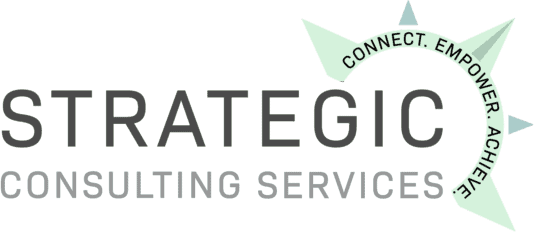Persons with vision impairments successfully perform a wide range of jobs and can be dependable workers. During the darker and colder Winter months, a little bit of accommodation can go a long way.
Short days, low temperatures, and difficulty shoveling snow or navigating icy walkways can all make it challenging to get to work on time. Also, employees who are capable of driving themselves to work under normal conditions can be helped by accommodations that would allow them to delay or avoid driving in snowy, icy, or cold conditions.
What Constitutes “Vision Impairment”
The Centers for Disease Control and Prevention (CDC) define “vision impairment” to mean that a person’s eyesight cannot be corrected to a “normal level.” There are varying degrees of vision impairments, and the terms used to describe them are not always consistent.
There are many possible causes for vision impairment, including damage to the eye and the failure of the brain to interpret messages from the eyes correctly. The most common causes of vision impairment in American adults are:
- diabetic retinopathy
- age-related macular degeneration
- cataracts
- glaucoma
Additionally, many individuals have monocular vision – perfect or nearly perfect vision in one eye, but little or no vision in the other. Vision impairment can occur at any time in life, but adults aged 40 and older are at the greatest risk for eye diseases, such as cataract, diabetic retinopathy, glaucoma, and age-related macular degeneration.
When does someone with a vision impairment have a disability within the meaning of the ADA?
As a result of changes made by the ADA, people who are blind should easily be found to have a disability within the meaning of the first part of the ADA’s definition of disability because they are substantially limited in the major life activity of seeing. Individuals with a vision impairment other than blindness will meet the first part of the ADA’s definition of disability if they can show that they are “substantially limited in seeing or another major life activity.”
Be Proactive in Offering Accommodations to Employees with Sight Challenges
Many employees with disabilities do not realize that they can request accommodations to help with commuting problems, especially if they only occur occasionally, like during inclement weather.
Some typical limitations that can impact winter driving and travel include vision limitations such as:
- Night blindness
- Contrast sensitivity issues
- Fear of driving in adverse conditions
- Respiratory and circulatory impairments where exposure to cold or exertion from shoveling exacerbate symptoms
- Pain from cold intolerance or exertion
- Gross motor impairments or balance disorders that make it harder to walk on ice or to clear off a vehicle or driveway
Employees with certain limitations, such as night blindness or other difficulties with driving at dawn, dusk, or in darkness may be able to work more effectively and attend work more consistently, with accommodations that allow them to arrive later and leave earlier on a regular basis. This can allow them to drive themselves at a time that works best for them, or plan to use public transportation or other ride options. Whether driving independently, walking, or using public transportation, employees whose morning routines are disrupted by inclement weather may benefit from accommodations such as:
- Permission to work from home
- Modified schedules
- Leave
- Policy modification
Contact the Disability Accommodations Experts at Strategic Consulting
Our team is here to help with your disabilities accommodation issues, vocational rehabilitation needs, ergonomic evaluations, and other employee needs.
We have partnered and provided solutions to some of the largest companies in the world (such as Boeing, Microsoft, and Amazon). But, at our core, we are still “people taking care of people,” one project at a time. Our success is built upon and providing you the best solution to your workplace challenge. Contact us today by filling out a form (below), submitting a referral, or visiting our ‘Contact Us‘ page to find your nearest office.

Ric has been working in the industry since 2002, specializing in developing employer jobsite analysis and light duty programs, ergonomics consultations and adjustments, disability accommodations and providing effective return to work solutions. Ric is Matheson trained in Ergonomics and is a Certified Ergonomics Evaluation Specialist. He earned a Bachelor of Arts Degree in Psychology from Western Washington University and later his Master’s Degree, M.Ed., Education Counseling from Seattle Pacific University. Ric is currently a Registered Vocational Rehabilitation Counselor for the Department of Labor and Industries and has been a Certified Disability Manager Specialist since 2006.

